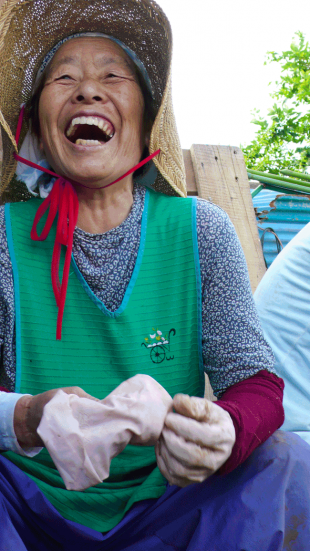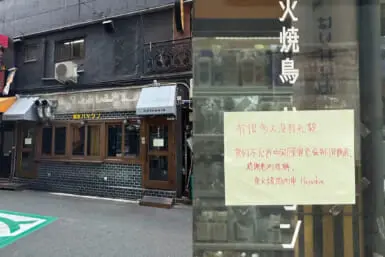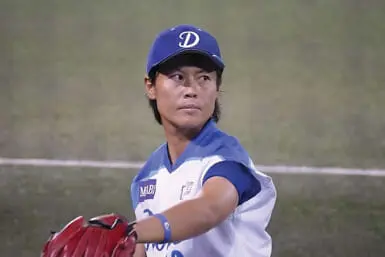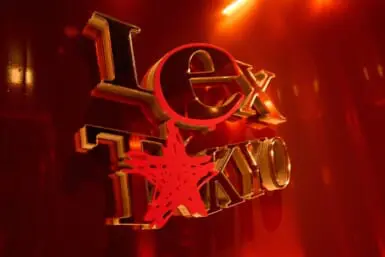On spicy cole slaw and the ties that bind in the Japanese countryside.
Text and pictures by Roberto De Vido
The Internet is full of advice about avoiding cultural faux pas in Japan. Take off your shoes when you enter someone’s home (and some offices), wash your body before you get into the bath (unless you’re a yakuza), use the proper honorific when meeting the Emperor and/or your elderly neighbor, and never, ever stick your chopsticks upright in a bowl of rice.
And once you get to Japan, you find all that advice to have been good. You also find, a bit later, that if you display any cultural sensitivity at all, Japanese are amazed and grateful. Last year, I had a lady in my village say, “Nihongo jouzo desune!!!” [your Japanese is great!] after I had said, “Ohayo gozaimasu.” I am not kidding. She set the bar pretty low, that obaasan.
I live in the countryside, an hour and a bit southwest of The Big City, in a small fishing and farming village on Miura Hanto. My front door opens onto a cabbage field, and my neighbors are mostly elderly farmers/fishermen whose futsu gomi (i.e. non-compostables) bag is the size of a softball. (Mine is significantly larger, embarrassingly.) They subsist on vegetables they farm, fish they catch, and seaweed they collect from the tide pools. It’s no wonder they expect to live to 117.
Lovely people, most of them.
But living in Japan, as you do, you know there is a culture of gift-giving. Historically, there has been oseibo and ochuugen, the new year and mid-year gift exchanges that might see you receive a case of mikan, or more inexplicably, canned coffee. (You can give a case of anything in this country.) And there’s Valentine’s Day, and White Day, and weddings, and funerals, and it just goes on and on, the giving that keeps on giving.
Here in the inaka, I don’t get cases of canned coffee. Because canned coffee does not grow on trees.*
A few months ago, I got a call from a former neighbor, with whom I had a complicated relationship. Her fields surrounded my house. She had no water supply for the fields. She is elderly. Shortly after I moved in, I noticed that she and her husband (now deceased) would push water up the hill from their house in jerry cans, on a hand cart, to water their fields. Unacceptable, I thought, and you would have thought the same.
So I offered the unrestricted use of my hosepipe. Japan is not Mali, after all, and water is relatively inexpensive here, not a scarce resource. My neighbor was grateful. She returned the favor in vegetables. A cornucopia of vegetables.
But then I moved house, to a different chome within the same village. I don’t see her quite as often, but we’re still friendly, which is why she called a few months ago and asked me to come over. She had some cabbage to give me, she said. Yay! So I hopped on the motor scooter I use to travel locally, and I arrived at her house in a few minutes.
“Oh,” she said. “I thought you would come in your car.”
“Why?”
“Well, I’ve got a lot of cabbage for you.”
“How much?”
“Um … nine.”
“Oh, no problem. If you’ve got a box or something, I can manage.”
So she found a box (she’s a farmer, and farmers throw nothing away), packed nine cabbages in it, and I maneuvered it onto the scooter and headed home. First stop, my friends Takeshi and Noriko, to ask them if they wanted some cabbage (because who can eat nine cabbages?!?). They took three. Which – if you’re following along at home – left me with six.
As you may imagine, cabbage was on the menu for some days/weeks. But after only a few days, I thought to myself, “Say, I should make some jalapeño cole slaw for Iimori-san, to thank her for the cabbage, and give her and her family a taste of something different that we gaijin do with cabbage.” So I chopped and mixed up a huge batch of jalapeño cole slaw, packed it up nicely, and headed over to the farmhouse.
I pingponged the doorbell, and when she answered, I said, “Hey, Iimori-san! I made you some jalapeño cole slaw!” She was completely unperturbed, although I would bet 10,000 cabbages she had never been given jalapeño cole slaw before, and said, “Lovely, thank you. Hang on.”
And here, I knew what was coming.
I knew because I grew up during the Cold War. I grew up in a building in New York City that had a nuclear fallout shelter sign in the basement. I grew up during the nuclear arms race toward the mutually assured destruction of East and West.
I knew she was coming back with more vegetables.
And so it came to pass. My dear, elderly neighbor brought back two heads of broccoli, a large daikon, and a small cauliflower. She pressed all that on me, insisted I take it. And I did.
Fortunately, before things got completely out of hand, she paused and said, “Do you need more cabbage? No. You don’t need more cabbage.”
No. I don’t need more cabbage. I’m trapped in an endless cycle of Japanese vegetable giving, in a village that almost never gets a frost, where farmers are able to plant three cycles of cabbage from November through April.
Then in May, the vegetables really start coming!
[*Cabbages also do not grow on trees, but you get the picture]










